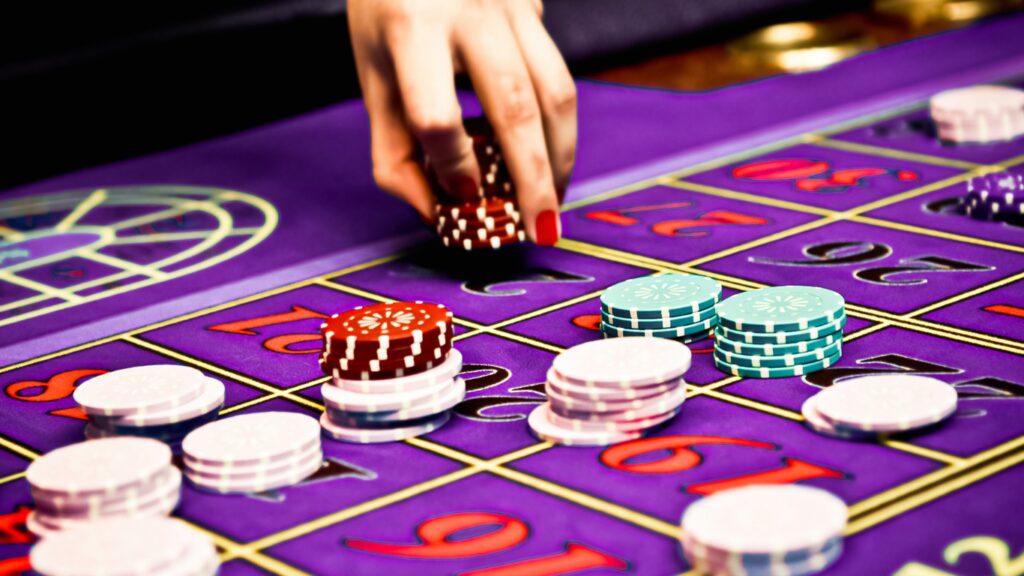Gambling can be thrilling, but let’s face it—it’s easy to get carried away. I’ve seen how the excitement can blur the line between fun and regret, and that’s where setting limits becomes a game-changer. A smart gambler knows that managing time, money, and emotions isn’t just responsible; it’s the key to enjoying the experience without unnecessary stress.
Understanding The Smart Gambler’s Guide
The Smart Gambler’s Guide focuses on practical strategies for setting limits in gambling and adhering to them. It targets managing key factors like:
- bankroll
- time allocation
- emotional regulation
By applying these methods, gambling can remain an enjoyable activity without negative consequences.
1. Defining Limits Clearly
Clear limits eliminate ambiguity and strengthen decision-making. For example, setting a specific budget, such as $100 per session, or a strict time frame, like two hours, creates boundaries that prevent impulsive behaviors.
2. Prioritizing Bankroll Management
Effective bankroll management ensures financial control. Allocating a fixed amount exclusively for gambling prevents overspending. For instance, dividing a $500 monthly budget into $125 weekly ensures sustainability.
3. Controlling Time Investment
Limiting gambling time prevents overindulgence. Setting fixed durations, such as one session per weekend, helps maintain balance with other priorities.
4. Monitoring Emotional Triggers
Recognizing emotional triggers reduces risky decisions. Negative moods or overconfidence often lead to poor choices. Identifying these moments allows for timely breaks.
This guide emphasizes practical application, ensuring gamblers enjoy their experience while avoiding potential pitfalls. Each step supports a responsible and mindful gambling approach.
Why Setting Limits Is Crucial

Setting limits while gambling creates a structured approach that safeguards emotional well-being, financial stability, and personal priorities. It ensures that gambling remains a source of entertainment rather than a source of stress or conflict.
The Risks Of Gambling Without Limits
Gambling without limits exposes individuals to uncontrolled spending, leading to potential financial ruin. Excessive losses often trigger high-risk behaviors like chasing losses, sacrificing necessities, or even engaging in debt accumulation.
It also increases emotional vulnerability. Prolonged losses can cause frustration, anxiety, or despair, diminishing the enjoyment of the activity. Without limits, gamblers risk developing unhealthy habits, escalating their gambling frequency, and detaching from real-world responsibilities.
Social consequences are common. Overindulgence in gambling can strain relationships, disrupt communication, and lead to feelings of isolation. Patterns of neglecting commitments often emerge, further impacting one’s support network.
Benefits Of Healthy Gambling Habits
- Healthy gambling habits improve decision-making and emotional control. Knowing when to stop prevents impulsive behavior and helps maintain composure during wins and losses.
- Financial stability is preserved by adhering to a pre-determined budget. Allocating and respecting set amounts for gambling prevents disruptions to other financial obligations like bills or savings.
- Time balance is sustained through defined time limits. Allocating specific durations to gambling ensures it doesn’t interfere with work, family, or hobbies, maintaining equilibrium across life’s priorities.
- Long-term enjoyment increases when gambling stays recreational. Limits maintain the fun and reduce the likelihood of developing a problematic gambling pattern.
Strategies For Setting Limits
Setting effective limits is essential for maintaining control and ensuring a positive gambling experience. Using defined strategies, I can establish and follow limits that align with my goals and priorities.
Identifying Your Gambling Goals
Understanding my reasons for gambling helps me define clear objectives. For entertainment, I focus on enjoying the experience rather than chasing wins. If building skills is the goal, I measure success through improvement instead of monetary gains. Goals like socializing or passing time also shape my approach, ensuring my limits support the purpose of my participation.
Establishing Financial And Time Boundaries
Allocating a specific budget and time frame protects me from overindulgence. I determine how much disposable income is safe to use after meeting expenses and responsibilities. For instance, I set a weekly gambling budget of $100 and avoid exceeding it. Similarly, I limit time by deciding how many hours per session or week I can devote without neglecting other commitments. This structured approach ensures I stay focused and prevents stress or regret.
Tools And Support For Enforcing Limits
I rely on tools and external support to adhere to my boundaries. Apps and software, such as gambling block tools or budget trackers, help me monitor and control spending. Casino self-exclusion programs ensure I don’t exceed physical access limits. Seeking advice or accountability from friends or gambling support groups reinforces discipline. Combining these resources with my self-awareness ensures I consistently stick to my limits.
Sticking To Your Limits
Maintaining set limits while gambling ensures it remains enjoyable and free from negative outcomes. Adopting strategies to manage triggers, build accountability, and decide when to leave can strengthen discipline.
Recognizing Triggers And Temptations
Identifying what drives impulsive decisions allows for better control. High-pressure environments, flashy promotions, or consecutive losses can push limits. I focus on understanding these triggers by observing when I feel the urge to bet more or chase losses. Implementing strategies like taking breaks or avoiding tempting settings reduces unnecessary risks.
Staying Accountable With Friends Or Groups
Checking progress with trusted individuals helps reinforce discipline. I share my gambling goals and limits with close friends or join gambling-support groups to stay consistent. Talking openly about experiences creates a network of encouragement and accountability, reducing the chances of exceeding limits.
Learning To Walk Away
Deciding to stop, even when tempted to continue, protects my limits. I predefine success and stopping points, such as hitting a target amount or sticking to my time restriction. When emotions, whether frustration or excitement, start influencing decisions, I remind myself of the importance of leaving to avoid regrettable actions.
















































































































































































































































































































































































































































































































































































































































































































































































































































































































































































































































































 As co-founder of CasinoMastermindx. Cecilla Pricetalker leads the vision and strategy behind the platform’s tech-focused content. With a deep understanding of casino innovation, software engineering, and iGaming trends, she ensures every piece reflects accuracy, innovation, and integrity. Cecilla’s leadership and technical insight make CasinoMastermindx.com a trusted source for forward-thinking gaming intelligence.
As co-founder of CasinoMastermindx. Cecilla Pricetalker leads the vision and strategy behind the platform’s tech-focused content. With a deep understanding of casino innovation, software engineering, and iGaming trends, she ensures every piece reflects accuracy, innovation, and integrity. Cecilla’s leadership and technical insight make CasinoMastermindx.com a trusted source for forward-thinking gaming intelligence.
